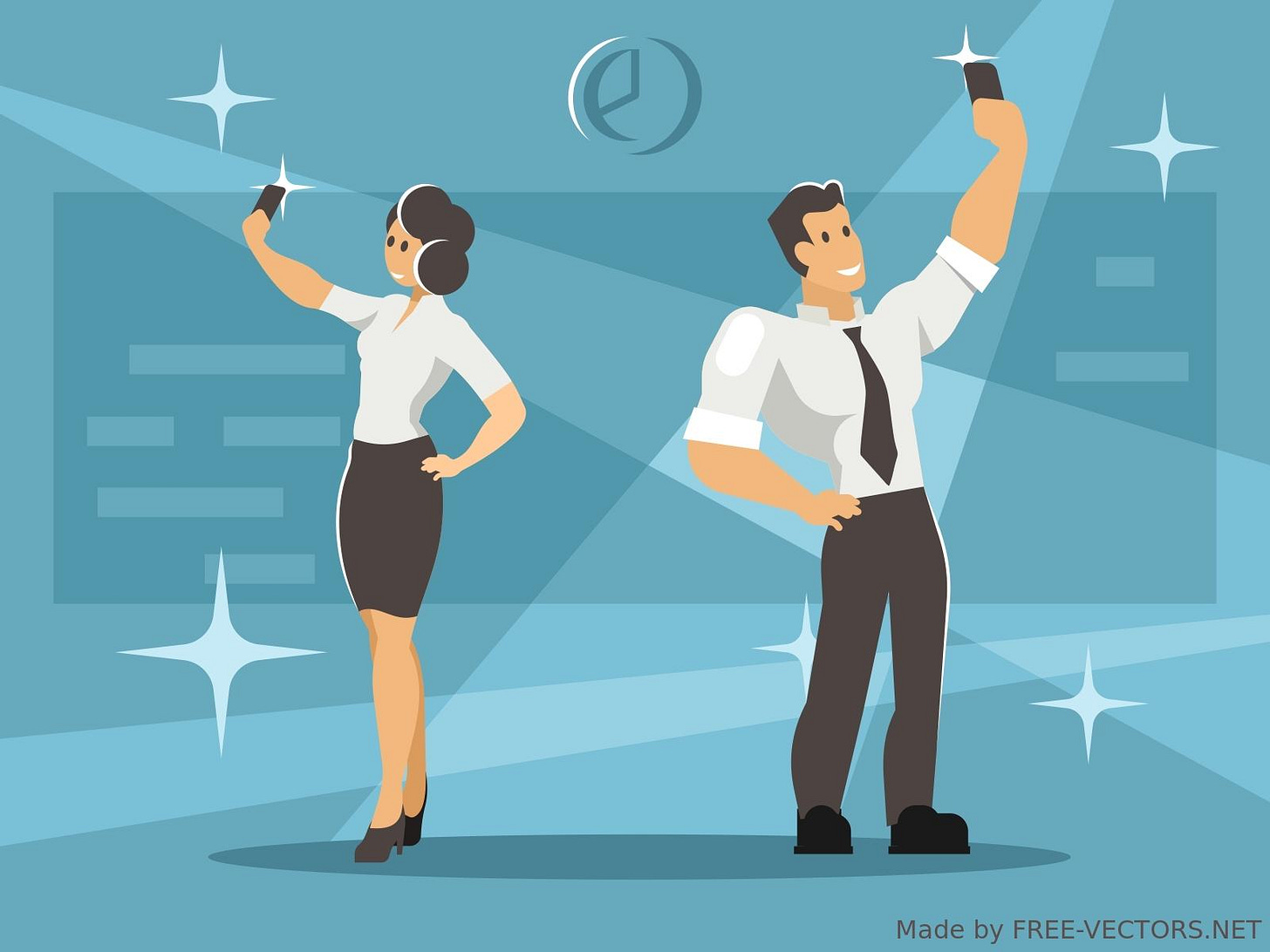These are difficult times, Well Canto Creatives. The bad news comes fast and furious and shows no sign of slowing down. We must stay connected and supportive of one another, aware of reality and truth, and energetically take steps to keep our heads cool and our hearts calm. Today we reflect on some effects of social media in our own lives as well as world-wide.
New Policies on Fact-Checking
The recent news that the owner of Facebook, Instagram, and Threads is abandoning fact-checking for a “community-based” system is just one more surreal development in modern life. With this change we will now be able to replace fact with opinion on those platforms if one’s community is large enough. The fact that this policy change is happening just as a new (old) president takes office - who daily promises to “punish enemies” with his presidential power - cannot be construed as unrelated, even by the most hoodwinked among us.
We already watched a cartoonish billionaire morph Twitter into a rage and hate-filled machine of disinformation. Tik Tok will likely be shut down in the US for sketchy data-collection practices. US extremists are routinely radicalized on YouTube, Facebook, and other sites. Things Fall Apart.
Much has been written about social media in general, so let’s just take a quick look at the intersection of socials and our general well-being.
The Good
Social media saves us time, keeps the far-flungness of modern life more manageable, and serves as documentation of our exciting, productive lives. What better way to feature our best moments, to humble-brag about our engagements and honors, and to feel like a special part of a niche community? Besides staying connected with friends and colleagues all over the world, socials offer other benefits like educational opportunities, activism, and social change. Many use it to market their businesses, and clever, funny memes can keep us laughing and sharing.
The more self-aware we are, the more we create our own state of well-being. Let’s look at a few questions. Be as honest with yourself as you can, and stay in a curious mindset as opposed to judgmental:
Why do you use social media?
How much time (days per week, hours per day) do you spend on socials?
In general, how do you feel when you engage? When you disengage?
The Bad and the Ugly
Dopesick
We humans are driven to seek pleasure. When we find it, the brain releases the chemical messenger dopamine - the ‘happy hormone’ - and we are motivated to repeat the behavior. As we scroll, like, comment, share , we feel socially connected. Each dopamine hit drives us to seek another and another, leading to the development of compulsive behaviors.
Dopamine imbalances are implicated in mental illnesses such as depression and anxiety. Low levels can lead to less motivation, less excitement, and lethargy. High levels of dopamine can lead to impulse-control issues, hyper-competitiveness, and aggressive behavior (Hello, Facebook!)
Self-Promoting or Self-Serving?
Showcasing our activities and abilities can be a positive act of sharing, and is a great way to build our personal brand. We may even generate or share work opportunities. An example of self-promotion is to get the word out about the concert you spent the last year creating. Perhaps you are raising funds for a cause, and audience development is critical to the success of your project.
However, if we prioritize our needs above others, act unethically, dishonestly, or manipulatively, we have crossed over into a self-serving stance. Examples of attention-seeking behaviors include: vague-booking, over-sharing, boasting, curating the ‘perfect’ image, and incessant posting with little valuable content, like excessive selfies.
The Brutal Truth About Selfies, Narcissism, and Low Self-Esteem
Socials Я Us
As social media has evolved, so too have the tactics used by bad actors to manipulate public opinion. From state-sponsored disinformation campaigns to coordinated efforts by fringe groups, social media has become a powerful tool for spreading propaganda and undermining democratic processes. The Russian interference in the 2016 U.S. presidential election is perhaps the most well-known example, where social media was used to create fake accounts, spread divisive content, and sow distrust in the electoral system.
American Lives Lost
One of the most significant challenges posed by social media is the spread of misinformation and disinformation. In recent years, social media platforms have become breeding grounds for false information, often with devastating consequences. The rapid spread of misinformation about COVID-19 vaccines, election interference, and other critical issues has raised alarms about the role social media plays in shaping public opinion.
“…at least 232,000 deaths could have been prevented among unvaccinated adults during the 15 months (5/30/2021-9/3/2022) had they been vaccinated with at least a primary series.”
Rohingya Genocide
A report by the UN found that social media was instrumental in fueling the systematic violence against the Rohingya Muslim minority starting in 2017, resulting in mass murder, rape, arson, and catastrophic displacement. Facebook was the primary platform for spreading hate speech and inciting violence. Nearly a million refugees, mostly women and children, remain homeless and at high risk even now.
Losing Time, Gaining Time
On average, we spend about 2.5 hours on social media, per day. That’s over 17 hours a week. I’m not here to scold - and yes, I also use social media - but it is worth considering whether and how this benefits us, or if our social media time is contributing negatively to our overall mood and productivity. Let’s consider a few more questions. Remember, stay curious, not judgmental.
How will we recognize if we are exhibiting addictive behavior?
To what degree are we using the hours in our days to keep moving toward our goals?
If we limited our time on socials, how would we use all that found time?
Social media use can be a fun and practical way of sharing, staying informed, and passing the time. Excessive use compromises our physical and mental health, and we may also become the victims of scammers, recruiters, and other malignant actors. Stay aware, stay in control of your actions and the way you use your time, and if something doesn’t seem right, fact-check and consider disengaging. Your well-being is worth it.
May you live in ease and kindness, with a free heart.
Singing Lessons: www.WAVS.info
Well Coaching: BarbaraShirvisWellness.com









I have removed all news feeds from my social media. This allows me to focus on posts from friends and family who I enjoy hearing from and eliminates the spiral of news doom. I also have stopped all news alerts on my phone and computer. If I want or need news, I deliberately get it in a way I control.